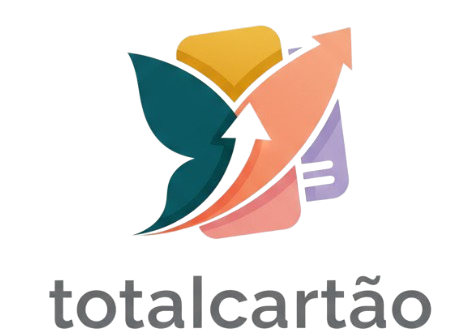Best Freelancing Communities To Join This Year
Freelancing is more than just working from home; it’s about connecting, learning, and growing your career while enjoying flexibility. But here’s the truth: freelancing can sometimes feel isolating. You’re working on your own, chasing clients, and learning new skills all at once. That’s why joining the right freelancing communities can completely change your journey.
Communities give you guidance, networking opportunities, and even potential job leads. They help you avoid rookie mistakes, keep you motivated, and provide a sense of belonging. Here’s a breakdown of the best freelancing communities you should consider this year, why they stand out, and how they can help you succeed.
1. Upwork Community
Upwork isn’t just a freelancing platform—it has an active community of freelancers and clients. Their forum is full of tips, success stories, and advice from experienced professionals.
-
Benefits:
-
Networking with top-rated freelancers
-
Insights on winning proposals and client communication
-
Regular webinars and workshops
-
-
Why it’s useful:
Upwork Community is ideal if you’re serious about building a long-term freelancing career on a platform-based system.
Pro Tip: Participate in forum discussions regularly. It’s a subtle way to get noticed and build credibility.
2. Fiverr Forum & Community
Fiverr has its own forum and learning hub, making it more than just a marketplace. You can connect with other freelancers, learn new skills, and share experiences.
-
Key Features:
-
Fiverr Learn courses
-
Q&A forums for troubleshooting
-
Networking events and online meetups
-
-
Best For: Beginners and mid-level freelancers who want to boost their profile visibility and learn directly from successful sellers.
Human-like Tip: Don’t just lurk. Asking questions or posting your journey increases engagement and helps you build your Fiverr “brand” naturally.
3. Reddit Freelancing Communities
Reddit has several powerful freelancing subreddits, including r/freelance, r/freelancers, and r/digitalnomad. These are gold mines for advice, resources, and real-life experiences.
-
Why Reddit works:
-
Free advice from real freelancers
-
Honest discussions about challenges and strategies
-
Job opportunities sometimes shared by community members
-
-
Community Style: Highly interactive and no-nonsense, perfect for quick insights or troubleshooting problems.
Human Tip: Comment and share your own experiences. Reddit values genuine contributions, and active members often get private messages from clients.
4. Facebook Freelancing Groups
Facebook still has some of the most active freelance groups, especially for niche areas like writing, design, or social media marketing. Examples include “Freelance Creatives” or “Digital Marketing Freelancers.”
-
Advantages:
-
Instant feedback on questions or portfolio reviews
-
Local job opportunities in your region
-
Networking with people from your industry
-
-
Why join: You can connect directly with clients, find collaboration opportunities, or just learn from seasoned freelancers’ posts.
Quick Tip: Turn notifications on for posts and events in groups. This ensures you never miss useful updates.
5. Discord Freelancing Communities
Discord isn’t just for gamers—it’s now home to vibrant freelancing communities where professionals share work, tips, and opportunities. Popular servers include The Freelance Café or Work From Home Hub.
-
Perks:
-
Real-time chats with freelancers around the world
-
Collaboration on projects
-
Access to live workshops, AMA (Ask Me Anything) sessions, and portfolio reviews
-
-
Best For: Freelancers who thrive on instant communication and active networking.
✨ Human Tip: Engage in voice channels occasionally. It builds relationships faster than text chats alone.
6. Slack Freelance Channels
Slack has industry-specific channels where freelancers gather to discuss skills, trends, and projects. Channels like Online Gigs, Remote Freelancers, and Freelance Writers Hub are very active.
-
Advantages:
-
Industry-focused discussions
-
Exclusive freelance job postings
-
Networking with experienced professionals
-
-
Why Slack works: Unlike social media, Slack is more professional-focused, making it ideal for serious networking.
Human Tip: Keep your profile updated and share your achievements or new projects—this often attracts collaboration requests.
7. Indie Hackers
Indie Hackers is a community for freelancers, entrepreneurs, and tech enthusiasts who are building online businesses.
-
Why it stands out:
-
Focuses on freelancers who also want to launch products
-
Learn from case studies, interviews, and revenue stories
-
Networking with product creators, marketers, and developers
-
-
Best For: Freelancers wanting to expand into entrepreneurship or create passive income streams.
Pro Tip: Comment on posts and share lessons from your freelancing journey. Authenticity resonates well here.
8. LinkedIn Groups for Freelancers
LinkedIn isn’t just for job hunting—it’s a hub of professional freelancing groups. Examples include “Freelance Professionals Network” and “Remote Work & Freelancing.”
-
Why it’s valuable:
-
Professional networking with potential clients and partners
-
Industry-specific knowledge sharing
-
Opportunity to showcase your portfolio professionally
-
-
Best For: Freelancers targeting corporate clients or B2B opportunities.
✨ Human Tip: Always personalize connection requests mentioning your interest in the group topic. It increases response rates.
-
You may also like: Why Digital Marketing Is Great For Freelancers
9. Twitter / X Freelancing Communities
Twitter (now X) has freelancers, coaches, and experts actively sharing tips and job leads. Using hashtags like #freelance, #digitalnomad, #remotework, you can find engaging content daily.
-
Advantages:
-
Quick insights on trends and opportunities
-
Ability to interact with high-profile freelancers
-
Networking through tweet threads, spaces, and discussions
-
-
Best For: Freelancers who consume and share information quickly while building a personal brand.
Human Tip: Engage with posts by retweeting and commenting. It’s more effective than just following.

10. Niche-Specific Communities
If you’re a writer, designer, developer, or marketer, joining a niche-specific community can be more impactful than general freelancing groups. Some examples:
| Niche | Community | Benefits |
|---|---|---|
| Writing | Medium Partner Program, r/writing | Monetization, feedback, networking |
| Design | Dribbble, Behance | Portfolio exposure, collaboration, client leads |
| Development | Stack Overflow, GitHub Communities | Peer support, coding advice, project collaborations |
| Marketing | GrowthHackers, Inbound.org | Learning trends, strategy tips, lead generation |
Human Tip: Being active in a niche community positions you as an expert, attracting clients organically.
How to Choose the Right Freelancing Community
Joining the wrong community can waste time and energy. Here’s how to pick the right one:
-
Active Participation: Look for communities with daily or weekly engagement.
-
Niche Relevance: Choose groups where your skills are in demand.
-
Professional Environment: Avoid communities with spammy job postings or low-quality content.
-
Learning Opportunities: Select communities that offer workshops, Q&A sessions, or mentorship.
-
Networking Potential: Communities with diverse members open doors to collaborations.
Tips for Getting the Most Out of Freelancing Communities
-
Be Genuine: Share your challenges, wins, and learning experiences. People resonate with authenticity.
-
Ask Questions: Don’t hesitate to ask for help; most freelancers are happy to share advice.
-
Offer Value: Answer questions, give feedback, and contribute. Reciprocity works!
-
Attend Events: Webinars, meetups, and live chats are gold mines for networking.
-
Stay Updated: Communities evolve; keep an eye on new rules, trends, and job postings.
FAQs About Freelancing Communities
Q1: Are freelancing communities free?
Most communities are free to join. Some premium groups or platforms may require a membership for exclusive content or jobs.
Q2: Can joining a community guarantee clients?
Not directly. Communities provide networking and learning opportunities. Clients may come as a result of your engagement and visibility.
Q3: How often should I participate in these communities?
Try to engage daily or at least several times a week. Consistency increases your presence and credibility.
Q4: Can I join multiple communities at once?
Yes, but avoid spreading yourself too thin. Focus on 2–3 active communities initially, then expand.
Q5: Do communities only help beginners?
No. Even experienced freelancers benefit from networking, learning new trends, and collaboration opportunities.
Conclusion
Joining a freelancing community isn’t just a “nice-to-have”—it’s almost essential in today’s remote-work-driven world. Whether it’s Upwork’s forums, Discord servers, or niche-specific groups, each community provides opportunities to learn, network, and grow.
The best approach is to engage actively, contribute genuinely, and leverage these communities for learning and collaboration. You’ll find that not only will your freelancing skills improve, but your network—and potential client base—will grow naturally.
Remember, freelancing is not just about completing projects; it’s about growing as a professional, connecting with like-minded people, and staying ahead in your field. Choosing the right community this year can set the stage for a successful freelancing career.




